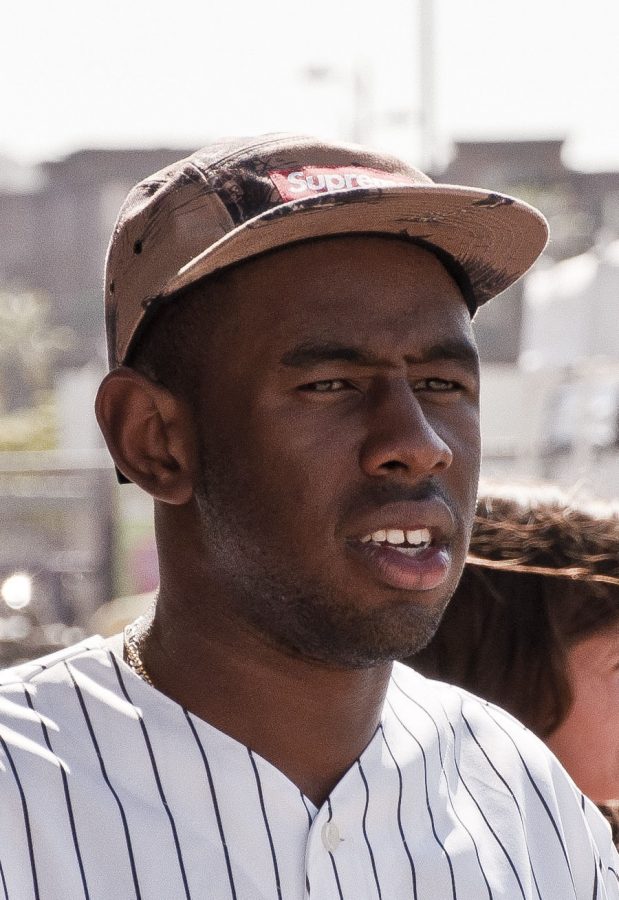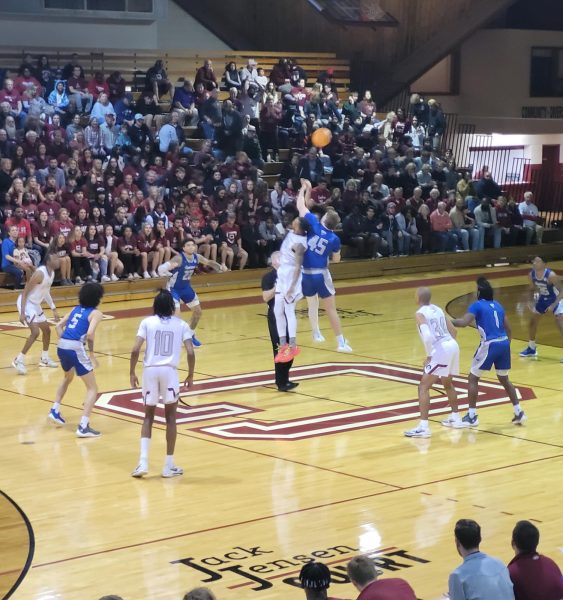The Ungrateful Audience: Camp Flog Gnaw marks a trend in the entertainment industry
On Sunday, Nov. 10, the crowd at Tyler the Creator’s “Camp Flog Gnaw” concert booed the rapper Drake offstage during his surprise performance.
Drake is world renown for his music, and most would jump at the chance to see him, but this crowd would not have him. The attendees were expecting a different artist, Frank Ocean, to perform as a guest during Tyler’s show, and they were surprised and disappointed when Drake walked onstage.
This instance is a microcosm of a big problem in the entertainment industry: the audience is never satisfied.
Disappointment fiascos tend to erupt in the entertainment industry at the fault of the audience. As consumers, we tend to blow every product out of proportion as soon as we hear about it.
Using the “Camp Flog Gnaw” example, the audience expected Frank Ocean to perform, even though there was no hard evidence that he would be the guest performer. There were hints that Ocean might be the guest, but it was never officially announced. Even still, fans immediately began idolizing the performance that was never going to happen in the first place. This set the performance up for failure, a phenomenon seen in other mediums as well.
For the recently announced animated “Scooby-Doo” movie, some people have already started expecting more than what the directors are capable of. A generation of young adults raised on the classic two-dimensional cartoon “Scooby-Doo” are expecting this movie to be the nostalgia rush of a lifetime when we only have one trailer out.
Simply put, the movie will probably not be as great as the fanbase imagines. The new “Scooby-Doo” is not marketed towards 16-24 year olds and is likely quite different from the classic cartoon show.
Because the hype built around this animated children’s movie is greater than what will be released, there will likely be a wave of disappointment when the movie doesn’t reach viewers’ expectations.
The weight of being politically correct has also become a problem within the producer-consumer relationship. If creators make one slip in the area of political correctness, they could lose their livelihood.
The grim-reaper of entertainment cost Kevin Hart the Oscars this year. Hart was supposed to be the host of the national event until homophobic tweets from 2009 resurfaced. Even though Hart apologized for the tweets, he still stepped down from the job when viewers were not satisfied with an apology.
Comedians like Kevin Hart are now always at risk of displeasing the people they perform for. Comedy requires you to say mean or edgy things for the sake of laughs and entertainment, therefore, comedians should not be taken seriously when they say perhaps problematic things.
More recently, comedian Dave Chappelle was penalized for breaking the PC code in his Netflix standup special “Sticks and Stones.”
In this special, he referenced the Kevin Hart incident and how political correctness ruins comedy. He also made jokes about the Jussie Smollett hoax and the LGBTQ community.
I thought Chappelle’s routine was very funny and would recommend it to others who haven’t seen it. Critics thought differently. For crossing the political correctness line, Chapelle received a 38% on Rotten Tomatoes. This excellent special was not deserving of such a low rating.
As consumers, we need to calm down. Not everything is going to be the greatest song or greatest movie of all time. Not every joke made towards your demographic was meant to make you feel bad. Sometimes you will have to see Drake instead of Frank Ocean.
Our extremely high demands make us miss out on enjoying a lot of great content. When we refuse artists a chance because they don’t fit our expectations, we miss out on a new perspective in the entertainment they create.












Walter • Dec 22, 2019 at 8:51 am
“ I thought Chappelle’s routine was very funny and would recommend it to others who haven’t seen it. Critics thought differently. For crossing the political correctness line, Chapelle received a 38% on Rotten Tomatoes. This excellent special was not deserving of such a low rating.”
He got a Critic Rating of 38% based on 17 votes. But he got an audience rating of 99% based on 39,818 votes.
Most people aren’t rabid moral authoritarians (RMA’s). But many of our institutions – journalism, college bureaucracies, HR departments, to name a few – have become overrun by them.